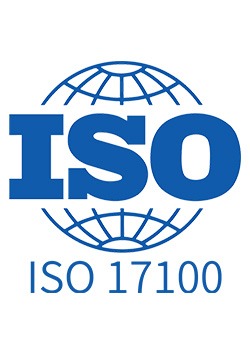
ISO 17100 - EN 15038
N 15038: Translation Services – Service Requirements
EN 15038 is a European standard that defines quality standards for translation services and ensures that these services are provided professionally. This standard regulates translation processes, translator competencies, and quality control mechanisms. EN 15038 provides a framework specifically for translation service providers (TSPs) to enhance their quality and level of professionalism.
In 2015, EN 15038 was transformed into an international standard and adopted as ISO 17100. However, EN 15038 is still used as a reference in many places.
Objectives of EN 15038
Standardize Translation Processes: To provide a transparent and consistent process for translation projects.
Quality Assurance: To increase the accuracy and reliability of translations.
Increase Customer Satisfaction: To meet customer expectations by providing professional services.
Define Translator Competence: To clarify the qualifications and areas of expertise of translators.
Enhance the Performance of Translation Service Providers (TSPs): To improve the operational processes of service providers.
Scope of EN 15038
EN 15038 covers all stages of translation services. The following topics are addressed in the standard:
Human Resources
Determination of the competencies of translators and revisers.
The following qualifications are expected from translators:
Proficiency in the source and target languages.
Subject matter expertise.
Experience in translation techniques.
Project Management
Planning, organization, and supervision of translation projects.
Clear communication with the client and accurate understanding of requirements.
Translation Process
Pre-translation preparation and project analysis.
Translation and revision stages:
Revision: Checking of the translation by another expert.
Review: Assessment of the translation's accuracy in terms of content, language, and terminology.
(Note: "Review" here is often referred to as "editing" in some contexts, and "revision" as a separate, distinct check for accuracy and completeness.)
Quality Control
Checking the accuracy of translation before delivery.
Ensuring compliance with terminology management and style guides.
Customer Communication
Understanding and fulfilling customer's requests.
Evaluating feedback and improving the processes.
Documentation and Archiving
Proper storage of documents related to translation projects.


Benefits of EN 15038
Quality Assurance: Ensures that translation services are of a high standard.
Customer Confidence: Increases customer confidence by providing services within a professional framework.
Standardized Processes: Provides an organized and consistent approach to translation projects.
Increased Efficiency: Saves time and resources through standardized processes.
Competitive Advantage: Helps service providers demonstrate their professionalism.
Who is EN 15038 Suitable For?
Translation agencies.
Freelance translators.
Companies with translation departments.
Institutions and organizations that procure translation services.
Contact Us to Meet Your ISO Certification Needs and Increase Your Efficiency.
We offer affordable and effective solutions tailored to your needs.
The information presented on this website does not constitute legal advice and is intended for informational purposes only. KompassEurope.com.tr assumes no responsibility for any errors or omissions in the information contained on this website. Any decisions made or actions taken by the reader based on this information are solely at the reader's own risk, and KompassEurope.com.tr shall not be held liable for any legal consequences arising from such decisions or actions. Readers are strongly advised to seek professional legal counsel regarding their specific circumstances and concerns.
© 2025 Kompass Europe. All rights reserved. The contents of this website belong to Kompass Europe and are protected by copyright laws. Copying, publishing, distributing or any commercial use of the information on the website is possible only with written permission. By using this site, you agree to our Terms of Use and Privacy Policy.
